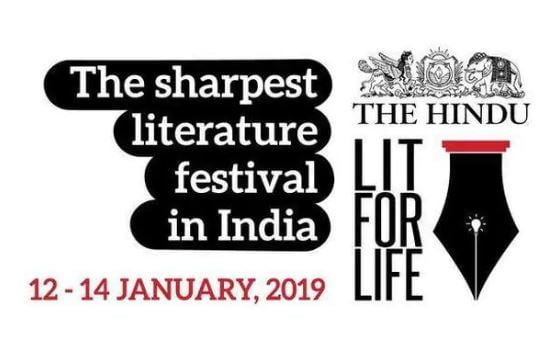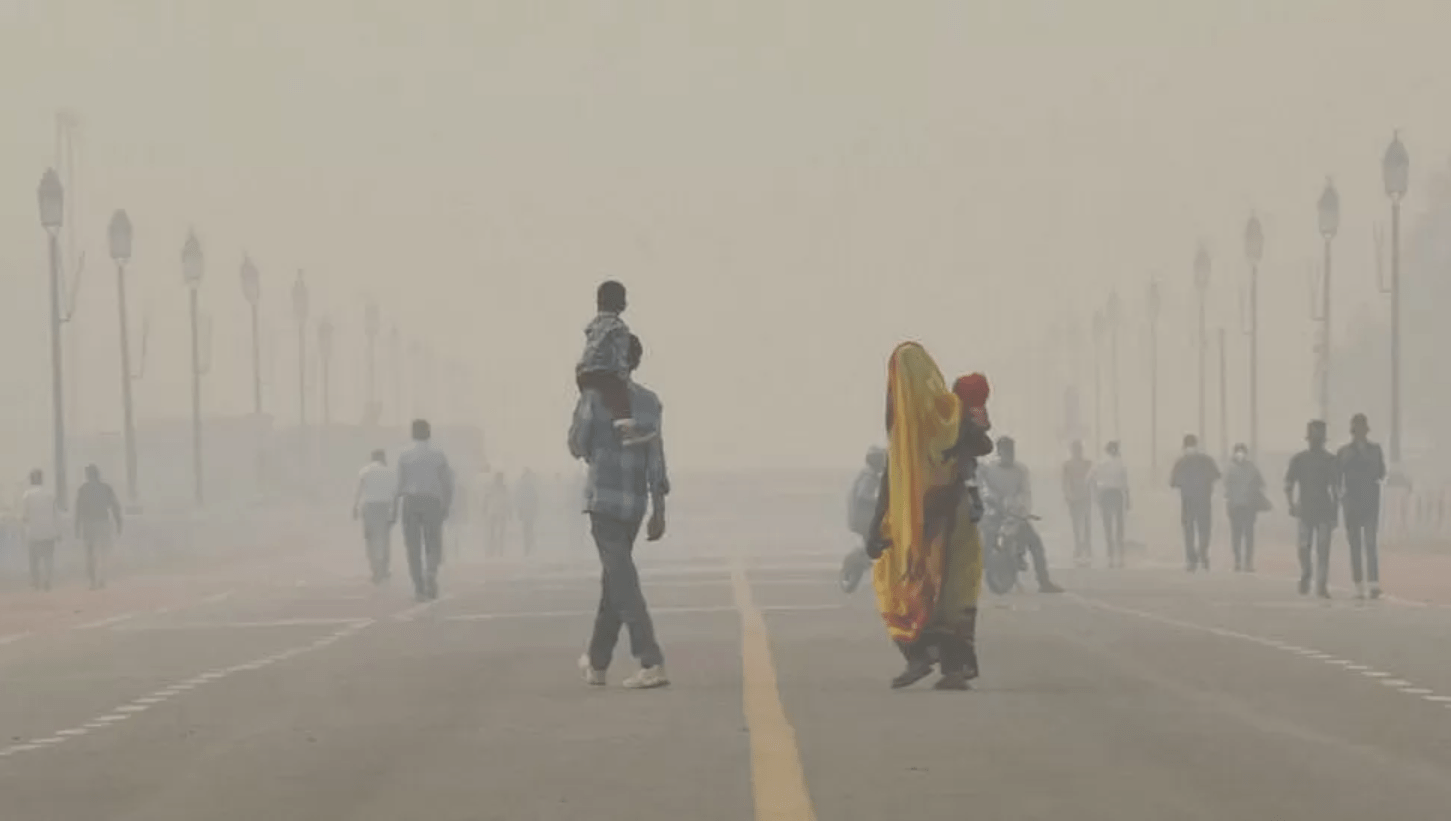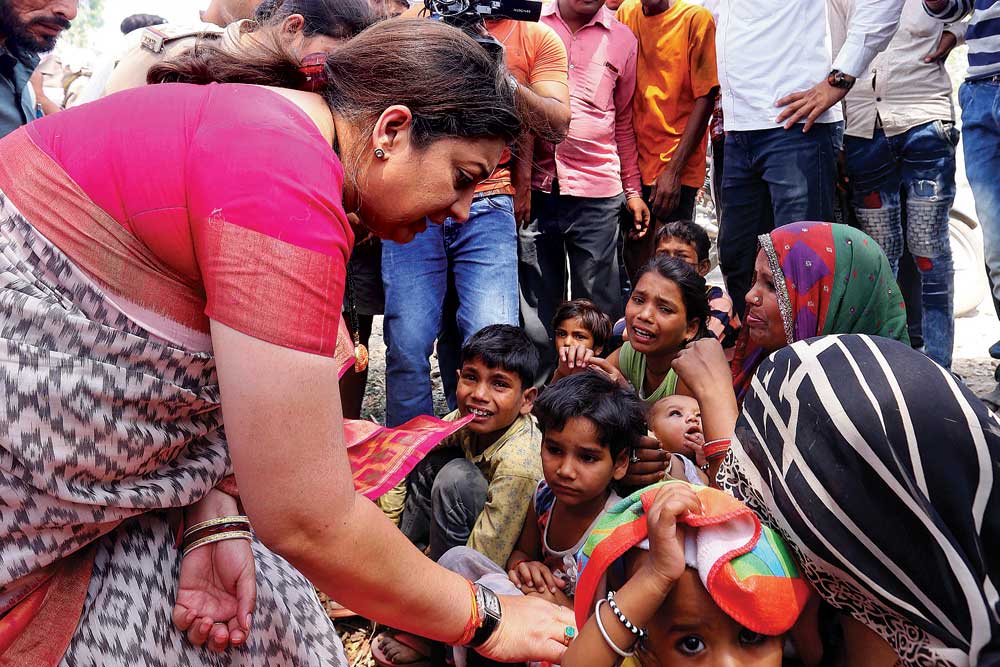Posted by Hamsadhwani Alagarsamy and Damo
The 9th edition of The Hindu Lit for Life took place on the 12th, 13th, and 14th of January in Chennai. Over 160 writers from all over the world were part of it and there were around 80 sessions on topics ranging from the India-Pakistan relations to managing waste. More than 10 workshops were also held for both adults and children on a multitude of art forms, such as miming and rapping.
Day One
Day one of Lit for Life opened on a political note, with Arun Shourie, Priya Sehgal, N Ram and R Jagannathan engaging each other with their knowledge of all things socio-political. Scathing criticism of the BJP and their policies drew many interesting questions from the crowd. Githa Hariharan and TM Krishna gave their thoughts on India’s multiculturalism being ironically suppressed by majoritarianism. Daniel Handler, the man behind Lemony Snicket, engaged the audience with quirky and light-hearted conversations about his books and his life, among other subjects. Jacinta Kerketta and Nighat Sahiba shared touching stories about languages, history and their own pasts.
The afternoon brought Husain Haqqani, John Keay, Suki Kim and James Crabtree together in a deep discussion about the future of democracy and the threat of authoritarian governments.
The post-lunch session in the main concert hall followed along similar lines, with C. Mahendran, Kanimozhi Karunanidhi, Peter Alphonse and Thol. Thirumavalavan discussing the government in Tamil Nadu. Arun Shourie, in conversation with N. Ravi, read out excerpts of his book and detailed the convoluted way that the Supreme Court dealt with judgements. Nazia Erum talked about her book, Mothering a Muslim, and shared her lived experiences with Islamophobia and misogyny.
The panel that was supposed to discuss on caste and religious assertions was notably lacking in diversity, and there was absolutely no discourse about caste.
Audrey Truschke followed with an illustrated lecture titled The Myth and Reality of Aurangzeb, which could be taken as an interesting, alternative narrative to the history we know, or as a revisionist approach that would infuriate many. It is well known that Truschke is at odds with Hindu organisations such as the Bharatiya Janata Party, Rashtriya Swayamsevak Sangh and Bajrang Dal, and her presentation surely did nothing to improve this. During the Q&A, she was heckled by an audience member, who questioned her right to comment on Indian history. Whether The Hindu deserves criticism for allowing a white woman to be a singular voice in a presentation about Indian history, is a question that must also be raised.
The penultimate session saw Manisha Koirala speaking about surviving ovarian cancer and the lessons she learned in the process. The day ended with Her Music Her Life: A Centenary Tribute to DK Pattammal, in which Akhila Ramnarayan and Nisha Rajagopal, in conversation with Gowri Ramnarayan, talked about Pattammal’s past, her glorious achievements in music, and her legacy. Pattammal is quoted as saying that it was “preposterous to believe that women are inferior to men, or worse, that women should hide their talent and restrict their imagination in order to not offend the male sense of superiority”.
Day Two
The second day opened with Politics of Identity: New Ideas of Caste and Religious Assertion, with panelists Aditya Mukherjee, Farahnaz Ispahani, Shiv Visvanathan and Ziya us Salam in discussion with G. Sampath. The panel was notably lacking in diversity, and there was absolutely no discourse about caste. Instead, the focus was almost entirely on the Indo-Pak partition and Hindu-Muslim enmity, with cheeky jokes about the political status of the cow in modern times. The panel failed to touch upon the more pressing issues of caste that they had the opportunity to inquire.
Dravidian Ideology in Praxis: Homage to Kalaignar Karunanidhi was hosted by Kanimozhi Karunanidhi, with panelists Dr. N Ezhilan and N Ram paying tribute to one of the most beloved people in Dravidian politics. Soon after, Nobel Prize Winner Venki Ramakrishnan gave an illustrated lecture about science, research, and economics. “There is a fundamental problem in investing in Science and Technology”, Venki says. “It is not a matter of money. You need people to absorb it.” Rajmohan Gandhi and Nirmala Lakshman, in their panel Modern South India, talked about the history of Dravidian culture of the people of the Indian peninsula.
The audience deserves to see themselves reflected onstage and that is impossible when the narrative is virtually always hogged by the people in power.
A.R. Venkatachalapathy continued with the history of the south with Bharati and Other Tamil Characters. This was followed by the award ceremony for The Hindu Prize 2018 and numerous more sessions on topics such as waste management, the silent epidemic of mental health issues, South Indian cuisine and sculptural traditions and the threat to free speech the media faces.
Day Three
The final day of the festival started with Husain Haqqani talking about India-Pakistan relations and concluding that since 71 years of diplomatic talks didn’t achieve anything, he “hopes the internet would bring us together and translate into policy change as well”. It was followed by a presentation by Suki Kim providing an illuminating insider’s look into what life in North Korea is actually like.
Also read: Representation Of Lesbian, Bisexual And Trans Women In Popular Media
There were several interesting panels with accomplished people such as Nobel Prize winner Venki Ramakrishnan, Daniel Handler, Ramachandra Guha, V. V. S. Laxman, to name a few. There were sessions on fighting the fake news crisis, the dissent on Aadhaar, the Me Too movement, the intersection of Shakespeare and Bollywood, among others.
Heterosplaining
But perhaps the most ‘sensational’ panel of the day was the one with Nandini Krishnan and Madhavi Menon on it, moderated by Susan Hawthorne. Called Sexual Personae: Overcoming Prejudice and Misconceptions about Sexuality, its two speakers were both straight, cis women.
What misconceptions about sexuality they dispelled shall forever remain a mystery. The session was essentially one hour of two non-queer women giving their opinions on how queer people should engage in resistance or verbalise their identity, or if they even should do either of those things.
A Lack Of Inclusivity And Diversity
This is a textbook example of why people belonging to a privileged class shouldn’t be the ones who are given a platform to direct the narratives of oppressed people. But this is something Lit for Life did multiple times. Nandini Krishnan, a straight, cis Savarna woman, was also featured on sessions called “Exiled at Home: Women and Lesbians in No ‘Man’s’ Land” and “Being the Other”. The panel for “Politics of Identity: New Ideas of Caste and Religous Assertion” did not seem to have even one Dalit speaker and the only religious minority that was represented was Muslims. This is testament to their lack of diversity and inclusivity.
There need to be more panels which focus on the discourses of marginalised communities – and if you do have such panels, please don’t fill them to the brim with privileged people. The audience deserves to see themselves reflected onstage and that is impossible when the narrative is virtually always hogged by the people in power. Because even if their intentions are good – they are literally incapable of providing an honest portrayal of the struggles of the oppressed. There are innumerable testimonies of how representation has helped marginalised communities. It’s time we internalise this and organise events of importance such as this, accordingly.
Also read: How Nandini Krishnan’s Book Hurts The Trans Men Community
It’s not just inclusivity that The Hindu seems to be apathetic towards. Daniel Handler/Lemony Snicket has been outed for sexual misconduct on various occasions. That The Hindu not only invited him, but also featured him on multiple panels, shows The Hindu’s complicity in letting powerful men get away with blatant misogyny. Providing a platform to sell his books within the venue only further enables him. The fact that LFL also hosted Strengthening Voices: A Collective Awakening, a session about the #MeToo movement, is ironic at best and downright insulting at worst. This raises the question of whether Strengthening Voices was just thinly veiled tokenism, and shows The Hindu’s inability or unwillingness to vet their speakers.
The Hindu had also initially monetised access to the event but later made the entry free. On their feedback forms, they further asked about monetising the event next year. The Hindu Lit for Life already draws a crowd that is fairly, if not highly, privileged. By also enabling a monetary barrier, a larger class/caste divide is established. Words are one of the strongest forms of protest and even unintentionally excluding the section that most needs it is highly dangerous. Literature festivals all over need to make more concentrated efforts to ensure diversity and inclusivity and brands need to step up their sponsorships for this to happen.
Hamsadhwani is a student and feminist. You can follow her on Facebook, Instagram, Twitter, and Linkedin.
Damo is a freelance graphic designer by profession, and a musician by hobby. You can follow him on Facebook and Instagram.
Featured Image Source: The Hindu




